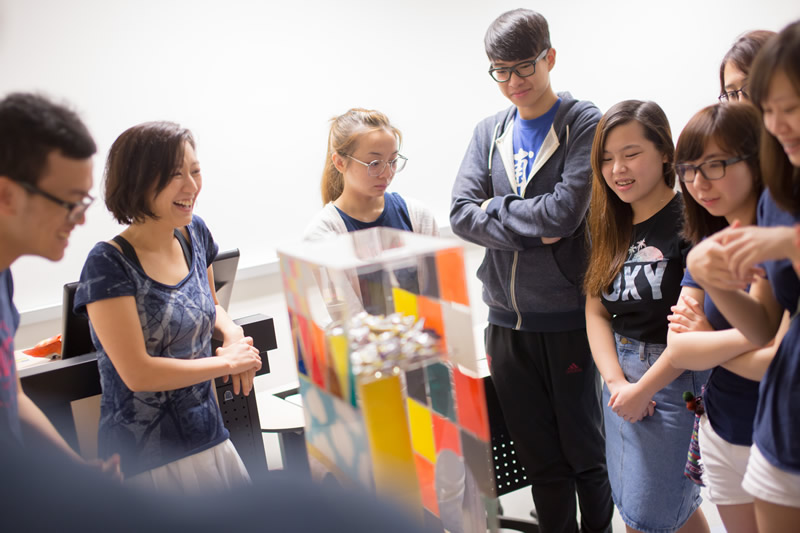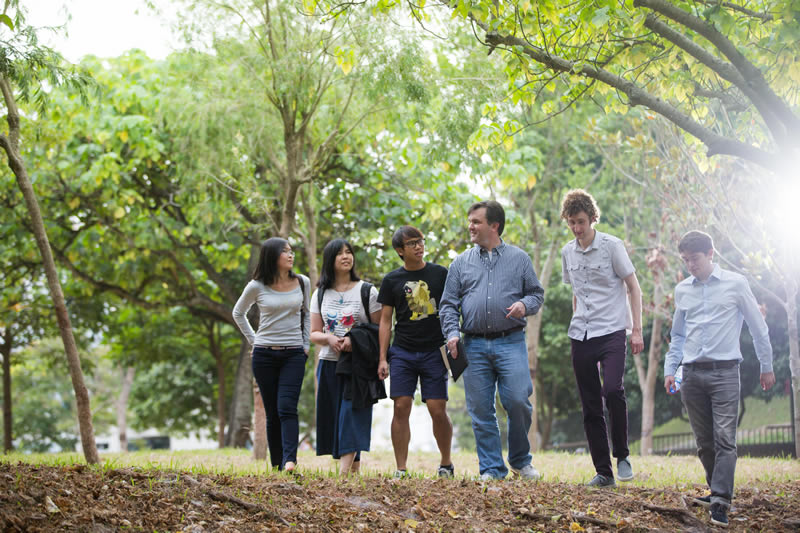Key Strategic Areas, Goals and Initiatives |
1 Academic Development and Research
Lingnan is committed to academic excellence. With the 4-year curriculum firmly in place, the University strives to enhance both the teaching quality and the educational experience of its undergraduate and postgraduate students through deploying innovative pedagogies and state-of-the-art education technologies, with an emphasis on a broad-based curriculum and interdisciplinarity at the undergraduate level. Lingnan prides itself on its commitment to a creative and synergistic integration of teaching, research and service. As a guiding principle, academic staff's performance in teaching and research is equally valued. In research, given the size of Lingnan, it needs to focus on selected strategic areas to achieve international distinction. The University will continue to support and consolidate knowledge transfer activities, through which the demonstrable contribution of research at Lingnan to society is imprinted.
In order to advance the University's academic and research excellence, Lingnan will undertake a number of initiatives spanning the following areas:
Undergraduate Programmes

- Develop measures for benchmarking academic standards, institutional performance, curricula and student profile against local, regional and international peer institutions
- Ensure full implementation of the “outcome-based approach to teaching and learning” (OBATL) and criterion-referenced assessment by the commencement of the 2017/18 academic year
- Institute rigorous and regular course level moderation mechanisms for maintaining academic standards
- Demonstrate the University's commitment to academic integrity by devising and implementing relevant policies and procedures across the institution
- Develop admissions strategies for enhancing the quality of the student intake
- Promote the newly-launched Bachelor of Business Administration programme in Risk and Insurance Management, and develop it into a flagship programme
- Expand the plan for an interdisciplinary self-designed major for Bachelor of Arts students and refine its implementation process
- Promote interdisciplinarity in the Bachelor of Social Sciences programme, especially in relation to social and public policies and Asian Pacific studies
- Co-brand with eminent universities to launch a global elite liberal arts undergraduate programme
- Introduce new interdisciplinary majors (such as science and environmental studies; creative arts and culture; regional and comparative studies; and health and social care management), and explore the possibility of developing a cross-disciplinary major, based on the initiatives of a shared ‘Global Studies' programme among Global Liberal Arts Alliance institutions
- Facilitate student participation in exchange programmes by making the credit transfer system more flexible
- Introduce mandatory English language entry and exit tests
- Strengthen students' research competence through capstone projects, supervised individual research and developing their library research skills
- Enrich students' international learning experience through collaboration with member institutions of the Global Liberal Arts Alliance and the Alliance for Asian Liberal Arts Universities
- Revitalise the Core Curriculum in support of the University's mission and strengthen the foundation for interdisciplinary and multidisciplinary learning
- Promote e-learning and develop innovative pedagogies using and incorporating digital and online education technologies (e.g., blended courses, flipped classroom, online assessment, etc.)
Postgraduate Programmes

- Ensure full implementation of OBATL and criterion-referenced assessment by the commencement of the 2017/18 academic year
- Articulate a strategy for expansion of taught postgraduate programmes, including the development of joint international or regional programmes with leading institutions that come with flexible delivery modes and strong experiential learning elements
- Establish a Division of Graduate Studies to oversee quality assurance, management and promotion of taught postgraduate programmes
- Create an inter-university postgraduate research platform to promote PhD student exchange with partner institutions and to identify strategic areas for co-branding executive/professional doctoral programmes with leading institutions
Research
- Identify and support strategic areas for future research development with reference to the University's overall strategic goals, comparative advantage and 2014 RAE results
- Review and consolidate support for research centres with a view to promoting synergised interdisciplinary and multidisciplinary research, as well as knowledge transfer projects
- Develop inter-university platforms for promoting international and regional research cooperation, publication and knowledge transfer
- Explore the establishment of a Lingnan Research Institute in Shenzhen, China to facilitate joint research, knowledge transfer and postgraduate training involving mainland Chinese partners
- Engage undergraduate students in faculty research and supervise student-initiated research, including community-based research and service-learning projects
- Promote research on teaching and learning with the aim of enhancing student learning
Academic Human Resource Management
- Initiate strategic recruitment at the University level to attract outstanding research talents in selected strategic areas
- Introduce a new research track for academic staff, with the intent of enhancing research productivity and faculty recruitment
- Introduce a new teaching track for academic staff, with the goal of enhancing the quality of teaching at both the undergraduate and taught postgraduate levels and pursuing excellence in pedagogical research
- Enhance the efficiency of staff deployment through a better mapping between staff's strengths and roles in the University
- Implement a funding mechanism that is driven by research performance in order to elevate the University's research profile
- Enhance staff cultural diversity with a view to integrating staff strengths to facilitate the provision of quality whole-person education by combining the best of Chinese and Western liberal arts traditions

